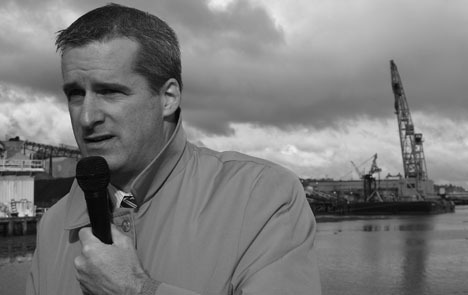The Port of Tacoma Commission announced Monday it had approved the terms of the departure of the Port’s executive director.
The terms call for Executive Director Timothy J. Farrell to work full-time through the end of the year, with Port employment officially ending May 31, 2010. Farrell and the commission will set priorities for Farrell’s focus through the end of the year.
Farrell sent employees an e-mail late Monday to notify them of the agreement, and he and commissioners were scheduled to meet with Port staff Tuesday morning to discuss the transition.
Farrell joined the Port of Tacoma in 2000 as Deputy Executive Director. He has served as Executive Director since 2004.
Before coming to Tacoma, he worked for the Port of Seattle and Massachusetts Port Authority. The native of Falmouth, Mass., earned his bachelor’s degree from Middlebury College and received his master’s degree in Port and Marine Transportation Management at the University of Washington.
Port commissioners will outline a process soon to name his replacement. In the meantime, Deputy Director John Wolfe will serve as interim director.
Farrell has recently come under fire for a failed plan to build a new terminal for NYK Line.
On Oct. 1, the Port announced a revised plan for NYK Line ships to call in Tacoma beginning July 2012. Although NYK had planned to come to a proposed new, 168-acre terminal on the Blair Waterway, its ships instead will call at APM Terminals (APMT) on the Sitcum Waterway. In 2007, the Port of Tacoma announced plans for NYK Line, a world-class shipping line from Japan, to operate its own marine container terminal in Tacoma beginning July 2012. Since that announcement, the Port began design work, environmental analysis and the permitting process to relocate the existing Totem Ocean Trailer Express terminal, build a new terminal for NYK Line, and improve roads, rail and utilities to support the redevelopment on the Blair-Hylebos Peninsula. As design advanced in 2008, it became clear that the cost of the new terminal development would exceed initial projections. The deteriorating global economy also would significantly delay the need for new capacity. The Port and NYK began seeking alternative solutions.





